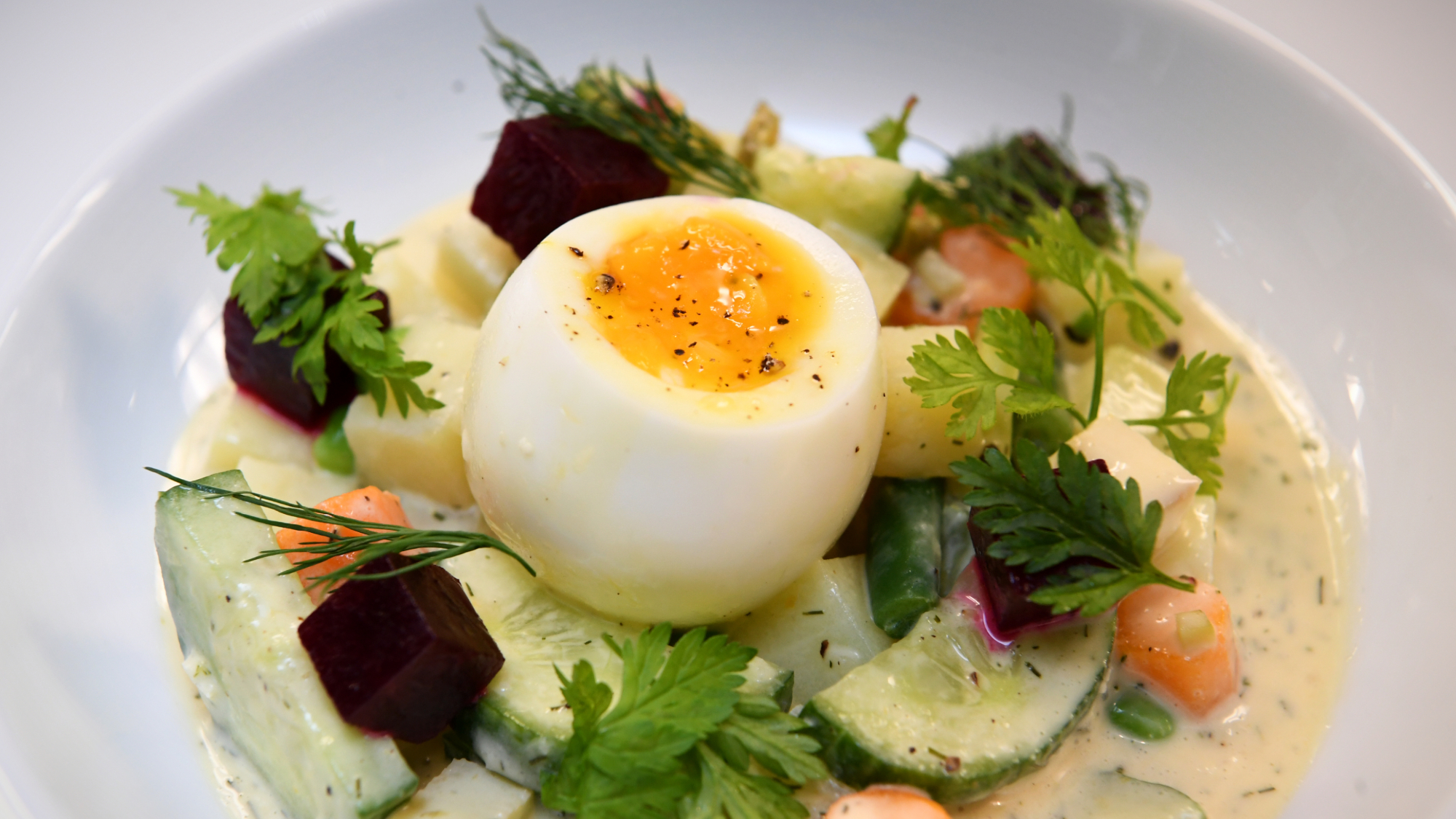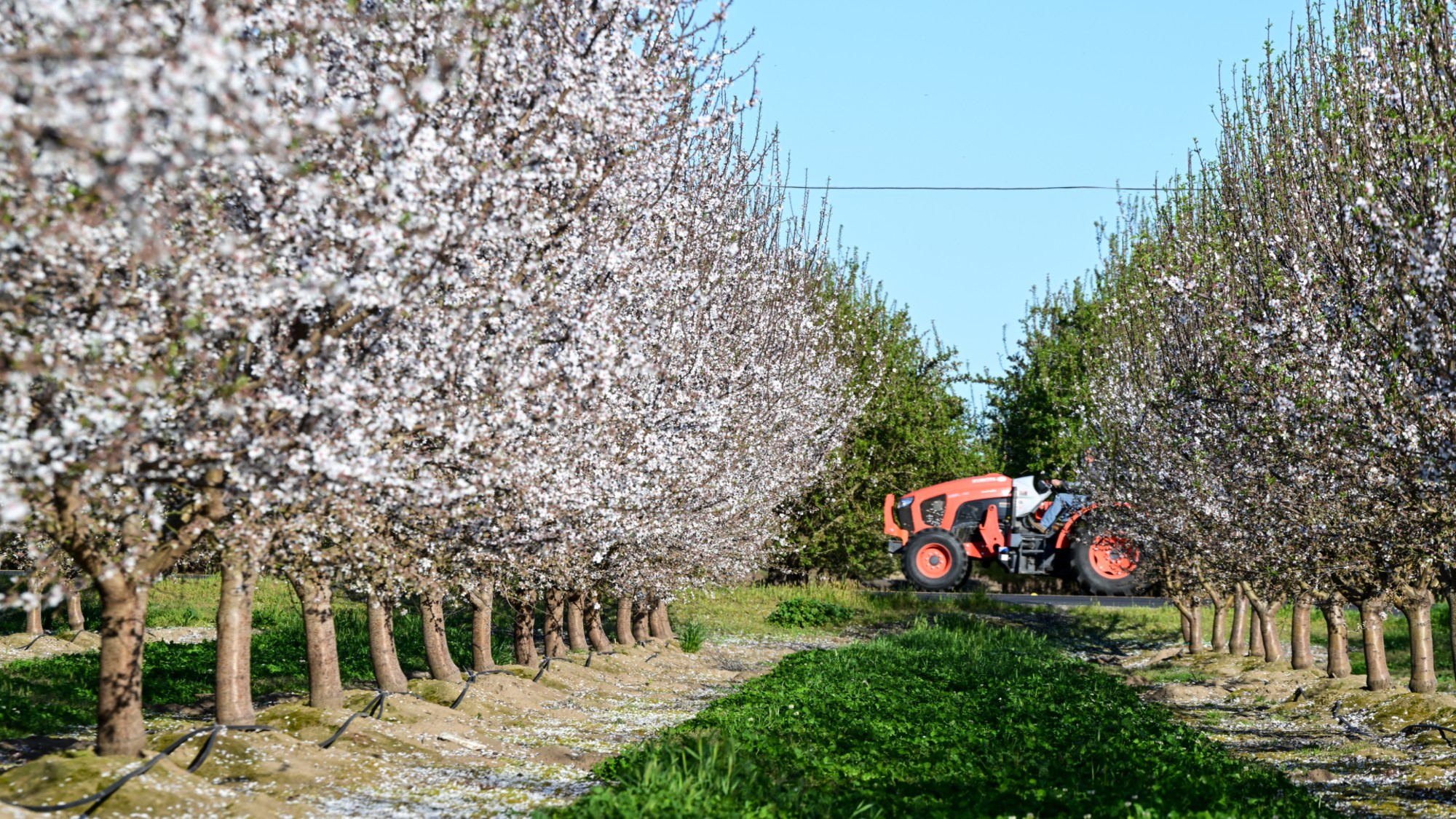Scientists report optimal method to boil an egg
It takes two temperatures of water to achieve and no fancy gadgets


A free daily email with the biggest news stories of the day – and the best features from TheWeek.com
You are now subscribed
Your newsletter sign-up was successful
What happened
Italian scientists said Thursday that it takes 32 minutes and two temperatures of water to achieve a perfectly boiled egg, given the different chemical compositions of the yolk and egg white, or albumen.
"The method not only optimizes egg texture and nutrients, but also holds promise for innovative culinary applications and materials treatment," the researchers reported in the journal Communications Engineering.
Who said what
The Italian scientists developed their "periodic cooking" method using fluid dynamics software and about 300 eggs. It "requires no special culinary skill or fancy gadgets," The New York Times said. But it does involve the egg "alternating between boiling and lukewarm water" — two minutes in a 212-degree bath, two minutes soaking at 86 degrees, repeated eight times total. The boiling water leaves "a well-cooked albumen without wasting the yolk," which reaches perfection in the average water temperature of 150 degrees, said Ernesto Di Maio, a materials scientist at the University of Naples, to the Times.
The Week
Escape your echo chamber. Get the facts behind the news, plus analysis from multiple perspectives.

Sign up for The Week's Free Newsletters
From our morning news briefing to a weekly Good News Newsletter, get the best of The Week delivered directly to your inbox.
From our morning news briefing to a weekly Good News Newsletter, get the best of The Week delivered directly to your inbox.
What next?
"It's probably brilliant — but who is the method for?" Deb Perelman, who runs the Smitten Kitchen blog, said to the Times. "For home cooking, there's always a necessary balance of perfect versus a reasonable effort." Perelman's "preferred foolproof method," the Times said, "involves a long ice bath after the egg is cooked."
A free daily email with the biggest news stories of the day – and the best features from TheWeek.com
Peter has worked as a news and culture writer and editor at The Week since the site's launch in 2008. He covers politics, world affairs, religion and cultural currents. His journalism career began as a copy editor at a financial newswire and has included editorial positions at The New York Times Magazine, Facts on File, and Oregon State University.
-
 How the FCC’s ‘equal time’ rule works
How the FCC’s ‘equal time’ rule worksIn the Spotlight The law is at the heart of the Colbert-CBS conflict
-
 What is the endgame in the DHS shutdown?
What is the endgame in the DHS shutdown?Today’s Big Question Democrats want to rein in ICE’s immigration crackdown
-
 ‘Poor time management isn’t just an inconvenience’
‘Poor time management isn’t just an inconvenience’Instant Opinion Opinion, comment and editorials of the day
-
 5 recent breakthroughs in biology
5 recent breakthroughs in biologyIn depth From ancient bacteria, to modern cures, to future research
-
 Blue Origin launches Mars probes in NASA debut
Blue Origin launches Mars probes in NASA debutSpeed Read The New Glenn rocket is carrying small twin spacecraft toward Mars as part of NASA’s Escapade mission
-
 Dinosaurs were thriving before asteroid, study finds
Dinosaurs were thriving before asteroid, study findsSpeed Read The dinosaurs would not have gone extinct if not for the asteroid
-
 SpaceX breaks Starship losing streak in 10th test
SpaceX breaks Starship losing streak in 10th testspeed read The Starship rocket's test flight was largely successful, deploying eight dummy satellites during its hour in space
-
 A rat infestation is spelling trouble for the almond industry
A rat infestation is spelling trouble for the almond industryThe Explainer The infestation has affected at least 100,000 acres in California
-
 Rabbits with 'horns' sighted across Colorado
Rabbits with 'horns' sighted across Coloradospeed read These creatures are infected with the 'mostly harmless' Shope papilloma virus
-
 Lithium shows promise in Alzheimer's study
Lithium shows promise in Alzheimer's studySpeed Read Potential new treatments could use small amounts of the common metal
-
 Scientists discover cause of massive sea star die-off
Scientists discover cause of massive sea star die-offSpeed Read A bacteria related to cholera has been found responsible for the deaths of more than 5 billion sea stars
